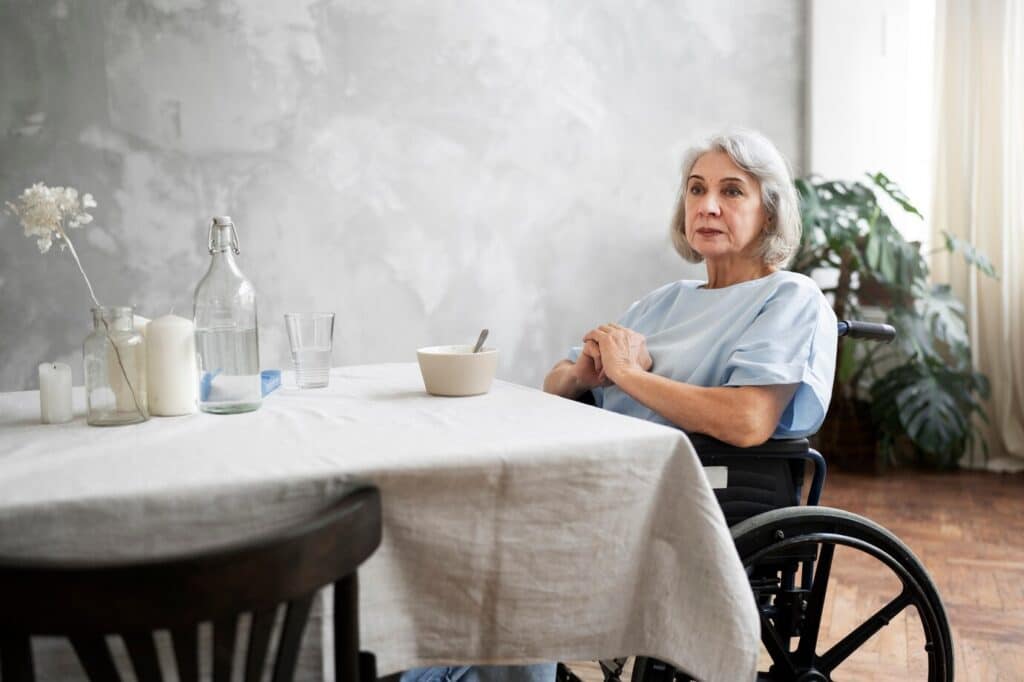As experts in senior care at Westmont of Cypress, we understand the importance of independence in our golden years. However, there comes a time when independent living signs might pose more risks than benefits. This comprehensive guide aims to help you identify those critical signs, ensuring the safety and well-being of your loved ones.
Understanding the Transition
Recognizing the Need for Change
- Safety Concerns in Daily Activities: One of the first signs that independent living might be unsafe is when daily activities become hazardous. This can include frequent falls, difficulty in managing medications, or forgetting to turn off appliances.
- Decline in Personal Hygiene: Noticeable changes in personal hygiene can be a significant indicator. Suppose your loved one neglects basic grooming or struggles with bathing and dressing. In that case, it may be time to reassess their living situation.
- Challenges in Mobility: Difficulty in moving around the house safely, especially in navigating stairs, can signal that independent living is becoming a risk.
Health and Wellness Indicators
- Memory Lapses and Cognitive Decline: Memory issues, confusion, or difficulty in handling finances can be early signs of cognitive decline, making independent living unsafe.
- Changes in Health Status: A decline in overall health or the onset of chronic illnesses may necessitate a more supportive living environment.
- Nutrition and Eating Habits: If there’s a noticeable change in eating habits, like skipping meals or inability to cook safely, it’s crucial to consider alternative living arrangements.
Home Environment and Social Indicators
- Home Maintenance Challenges: Difficulty in maintaining a clean and safe home environment is a clear sign. Look for unattended repairs, cluttered spaces, or hygiene issues.
- Social Isolation: Withdrawal from social activities or a noticeable decrease in communication can indicate struggles with independent living.
- Safety Concerns in the Neighborhood: Consider the safety of the neighborhood, especially if your loved one lives alone. An increase in crime or lack of community support can make independent living risky.
Emotional and Psychological Signs
- Mood Changes and Depression: Significant changes in mood or signs of depression can be linked to the challenges of managing independently.
- Anxiety About Being Alone: If your loved one expresses fear or anxiety about being alone, it’s a strong indicator that they might need a more supportive living environment.
- Loss of Interest in Hobbies: A lack of interest in previously enjoyed activities can be a sign of struggling with the demands of independent living.

Emotional and Psychological Signs
Expert Guidance at Westmont of Cypress
At Westmont of Cypress, located in the heart of Cypress, CA, we are committed to providing expert guidance and support in navigating these challenging transitions. Our team understands the nuances of senior care and is dedicated to offering solutions that prioritize the safety and happiness of our residents.
Planning for the Future
Assessing the Need for Assistance
- Financial Management Issues: Difficulties in managing finances, such as unpaid bills or unexplained spending, can indicate that it’s time to consider other living options.
- Medication Mismanagement: Mismanaging medications by forgetting doses or taking incorrect amounts is a serious safety concern in independent living.
- Increased Need for Medical Attention: Frequent visits to the doctor or increased need for medical care can be a sign that living independently is no longer the best option.
The Role of Family and Caregivers
- Caregiver Stress: If family members or caregivers are experiencing increased stress or burnout, it might be time to explore other living arrangements for their loved ones.
- Reliance on Others: An increased dependence on family members or friends for daily tasks can be a clear indication that independent living is becoming less feasible.
- Changes in Family Dynamics: Noticeable changes in relationships with family members, often due to the strain of caregiving, can signal the need for a transition.
Embracing a New Chapter
The Benefits of Assisted Living
- Safety and Security: Assisted living provides a safe environment with easy access to medical care and assistance with daily activities.
- Social Engagement: It offers opportunities for social interaction, reducing the risk of isolation and loneliness.
- Personalized Care: Residents receive individualized care tailored to their specific needs, enhancing their quality of life.
Overcoming Resistance to Change
- Addressing Fears and Concerns: It’s important to have open and empathetic conversations about the benefits of transitioning to a setting like Westmont of Cypress.
- Involving Loved Ones in the Decision: Including your loved one in the decision-making process can ease the transition and help them feel more comfortable with the change.
- Highlighting the Positives: Emphasize the improved quality of life, security, and community support that comes with assisted living.
A Caring Path Forward
Recognizing the signs that independent living is no longer safe is crucial for the well-being of our elderly loved ones. At Westmont of Cypress, we understand these challenges and are here to offer guidance, support, and care. Our compassionate team, located in Cypress, CA, is dedicated to ensuring a smooth transition to a safer and more fulfilling living environment.
Contact us now
If you or your loved one is experiencing these signs, don’t hesitate to contact us for help. Contact Westmont of Cypress at 714-252-7144 to explore how we can assist in creating a safer, more enjoyable living experience for your loved one.
As experts in senior care at Westmont of Cypress, we understand the importance of independence in our golden years. However, there comes a time when independent living might pose more risks than benefits. This comprehensive guide aims to help you identify those critical signs, ensuring the safety and well-being of your loved ones.








